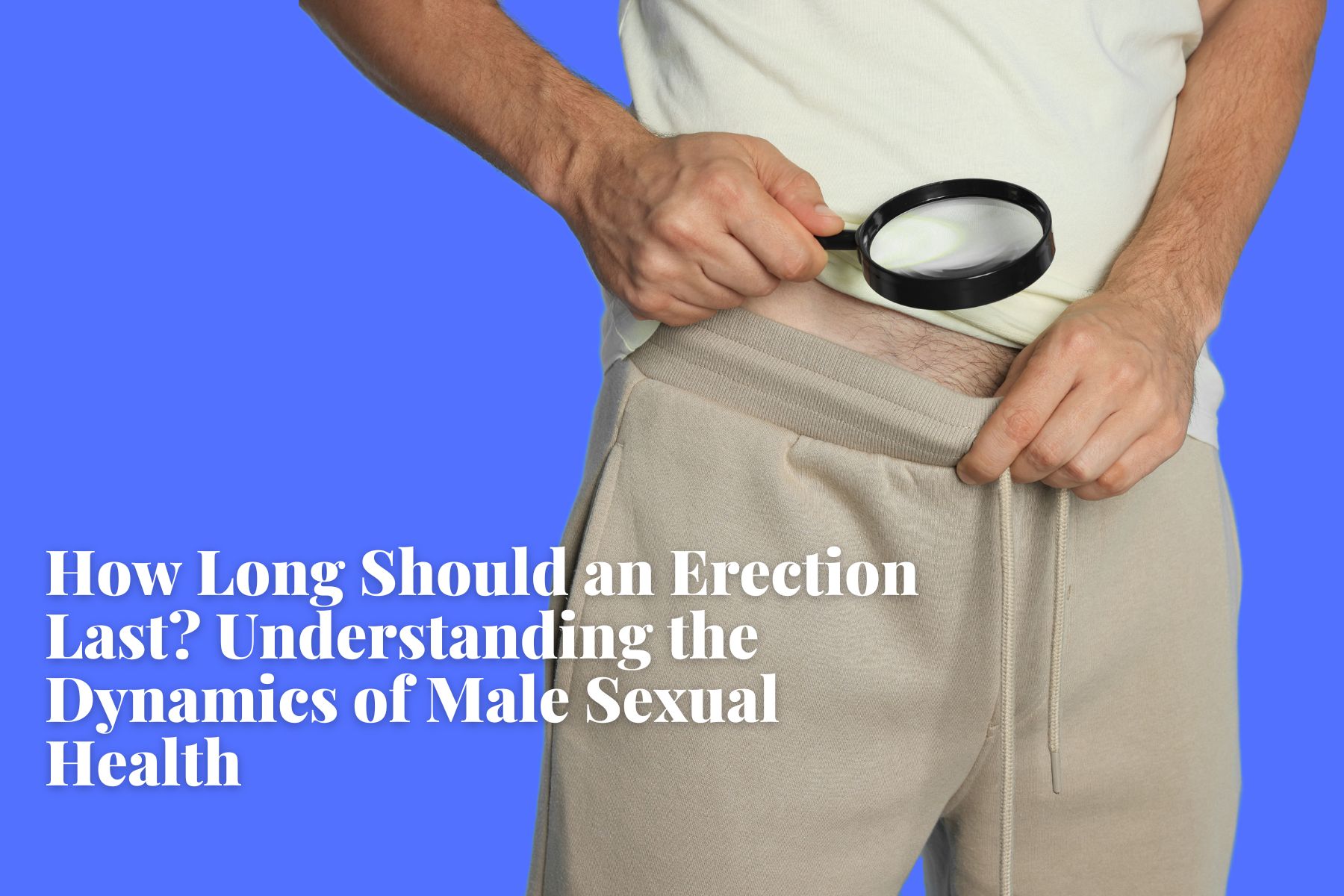CATEGORY: HARDER ERECTIONS
How Long Should an Erection Last? Understanding the Dynamics of Male Sexual Health

The duration of an erection is a topic that often raises questions and concerns among individuals. While there is no specific timeframe that universally dictates how long an erection should last, understanding the factors that influence erection duration and the mechanics behind it can help individuals navigate their sexual health more confidently.
How Long Erections Last:
The duration of an erection can vary from person to person and situation to situation. In general, the average duration of an erection during sexual activity is commonly considered to be anywhere from a few minutes to around 30 minutes. However, it's important to note that variations are entirely normal, and factors such as age, overall health, and individual physiology can contribute to these differences.
How Erections Work:
Erections are a complex physiological process involving a delicate interplay of the nervous, vascular, and hormonal systems. When a man becomes sexually aroused, the brain sends signals to the nerves in the genital area, prompting the release of nitric oxide. This chemical dilates blood vessels in the penis, allowing increased blood flow. The erectile tissues then fill with blood, causing the penis to become erect.
Factors That Can Affect How Long an Erection Lasts:
Several factors can influence the duration of an erection. Psychological factors such as stress, anxiety, or performance pressure can impact sexual function. Physical health plays a crucial role, as conditions like diabetes, cardiovascular diseases, or hormonal imbalances can affect blood flow to the genital area. Lifestyle choices, including smoking, excessive alcohol consumption, and a sedentary lifestyle, can also contribute to erectile issues.
Potential causes of ED include physical health issues like:
* High blood pressure
* Heart disease
* Diabetes
* Multiple sclerosis (MS)
* Injuries to the penis and surrounding area
* Being overweight
* Unhealthy habits like smoking, drinking excessively or using illicit drugs
In some cases, ED can occur as a result of psychological conditions that reduce sexual arousal or desire, such as:
* Depression
* Sexual performance anxiety
* Low self-esteem
* A stressful and demanding lifestyle
Types of Erections and How Long They Last:
There are different types of erections, each serving distinct purposes. Psychogenic erections occur in response to sexual thoughts or stimuli and typically last as long as the stimulation persists. Nocturnal erections, commonly known as morning wood, happen during sleep and can last anywhere from a few minutes to much longer. Reflexogenic erections are stimulated by physical touch and may vary in duration depending on the level of arousal.
How Long Should an Erection Last?
While there is no strict timeframe for how long an erection should last, it's crucial for individuals to be attuned to their bodies and any changes in their sexual health. If there are concerns about persistent erectile difficulties or if erections are consistently too brief, seeking advice from a healthcare professional is recommended. Open communication with a partner, maintaining a healthy lifestyle, and managing stress can also positively impact sexual well-being.
How Long Does the Average Man Stay Erect?
While limited research exists on the average duration of erections, scholars have explored the timeframe during which men engage in sexual activity before reaching ejaculation. Termed intravaginal ejaculation latency time (IELT), this metric gauges the duration between initial vaginal penetration and the point of intravaginal ejaculation, marking the onset of orgasm and ejaculation.
In a 2005 study involving 500 couples across five different countries, researchers observed variations in average IELT, ranging from a brief 55 seconds to an extended 44 minutes, with a median IELT of around five minutes. According to findings published in the Asian Journal of Andrology, nocturnal erections typically endure for a minimum of 10 minutes and occur multiple times during the night.
It's essential to note that not every erection is expected to persist for five, 10, or 44 minutes. However, individuals who frequently experience the loss of erections during sex before ejaculation or struggle to maintain hardness for more than a few minutes may be grappling with some form of erectile dysfunction.
Erectile dysfunction is prevalent, even among younger men. A study from the Journal of Sexual Medicine in 2013 revealed that one in four men seeking treatment for ED was below the age of 40. This revelation might be surprising, but it underscores the commonality of erectile dysfunction across various age groups.
Conclusion:
Understanding the dynamics of how long an erection should last involves recognizing the intricate processes of sexual arousal and the multitude of factors that can influence sexual health. Rather than adhering to a rigid timeframe, individuals are encouraged to prioritize overall well-being, communicate openly with their partners, and seek professional guidance if necessary. In doing so, a holistic approach to sexual health can be fostered, contributing to a more satisfying and fulfilling intimate life.


